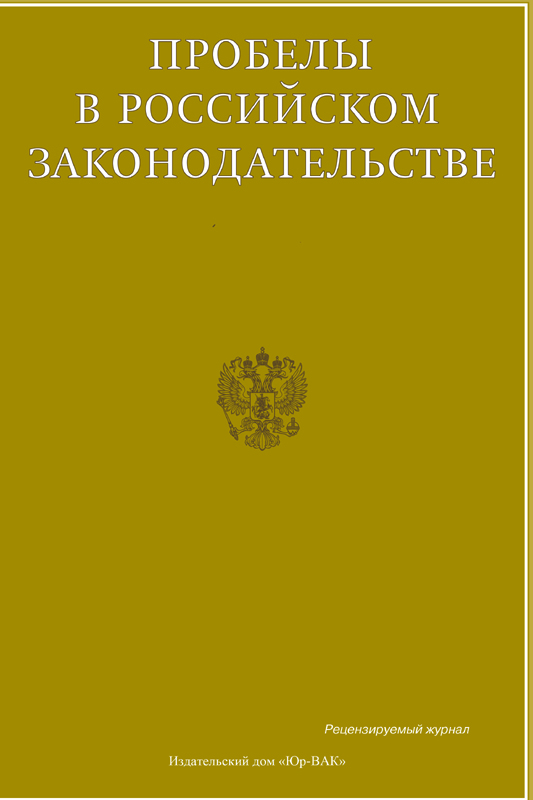Cyberterrorism as a Modern Threat to State Security
- Autores: Zhukov A.Z.1, Ogorodnikov M.A.2
-
Afiliações:
- Krasnodar University of the Ministry of Internal Affairs of Russia
- Omsk Academy of the Ministry of Internal Affairs of the Russian Federation
- Edição: Volume 16, Nº 4 (2023)
- Páginas: 25-29
- Seção: Criminalistic, procedural and operative-search measures to counter crime in the globalization conditions
- URL: https://journals.eco-vector.com/2072-3164/article/view/568296
- EDN: https://elibrary.ru/HSMGEB
- ID: 568296
Citar
Resumo
The security of the state is ensured through the use of a whole range of tools. The active development of the whole society, the increased pace of digitalization and globalization contribute to the emergence of new threats to the state, its national security as a whole. One of such threats that appeared in the 21st century is presented in the form of information terrorism, which has also received another name "cyberterrorism". The traditional forms of terrorism and extremism that spread in the 20th century have been replaced by cyberterrorism. Cyberterrorism is one of the global problems that violate the stability, integrity and security of the modern state. One of the problems associated with information terrorism is the rapid pace of its spread and the lack of geographical boundaries. This, in turn, complicates the fight against a new threat to national security, which requires the development of new approaches, methods, and instruments of counteraction at the state level. In the Russian Federation, in the current conditions, increased attention is paid to issues of ensuring national security, and in particular to ensuring information security. Modern wars are informational in nature, since information is one of the most valuable resources. The ongoing events in the world, the tension in international relations, the emergence of contradictions in society provoked an intensification of the information struggle. Information propaganda becomes one of the tools for violating the national security of the state. Cyberterrorism is spreading at a very fast pace under the current conditions. There are cases in history when it was terrorism that led to the destabilization of the situation in the state, the change of political power. In general, these events make it possible to consider cyberterrorism as one of the main threats to the national security of the state.
Palavras-chave
Texto integral
Sobre autores
Azamat Zhukov
Krasnodar University of the Ministry of Internal Affairs of Russia
Autor responsável pela correspondência
Email: zhukov_azamat@mail.ru
Cand.Sci.(Tech.), Senior Lecturer of the Department of Activities of Internal Affairs Bodies in Special Conditions, North Caucasus Institute for Advanced Studies (branch)
Rússia, Nalchik, KBRMaxim Ogorodnikov
Omsk Academy of the Ministry of Internal Affairs of the Russian Federation
Email: zhukov_azamat@mail.ru
Police Senior Lieutenant, Cand.Sci.(Law), Associate Professor of the Department of the Activities of the Internal Affairs Bodies in Special Conditions
Rússia, OmskBibliografia
- Aloeva A.A., Aloev I.A., Zhukov A.Z. Information terrorism - a threat to national security in the context of digitalization Direct text // Gaps in Russian legislation. 2020. V. 13. No. 6. P. 197-201.
- Akhmedov V.Kh., Sidnenko G.F. Information counteraction to terrorism in the Russian Federation: conceptual and content analysis - Direct text // World of education - education in the world, 2015. - No. 3. - P. 101–110.
- Zhukov A.Z. To the question of the impact of cyberterrorism on the national security of the Russian Federation in modern conditions // Gaps in Russian legislation. 2022. V. 15. No. 5. P. 91-95.
- Zhukov A.Z., Ingushev Ch.Kh., Bitov A.A. Information security as an element of the national security of the Russian Federation // Problems of Economics and Legal Practice. 2021. V. 17. No. 1. P. 278-283.
- Zhukov A.Z., Makhov I.A., Shkakhova F.A. Actual problems of ensuring information security in the internal affairs bodies in modern conditions // Eurasian legal journal. 2022. No. 8 (171). pp. 374-376.
- Koshechkina E. A. On the issue of countering cyberterrorism // ONV. OIS. 2017. No. 4. P. 97-101.
- Lyuev T.Kh. Information terrorism - as one of the types of terrorist threats in the context of the globalization of the information space // Gaps in Russian legislation. 2019. No. 5. P. 247-249.
Arquivos suplementares









